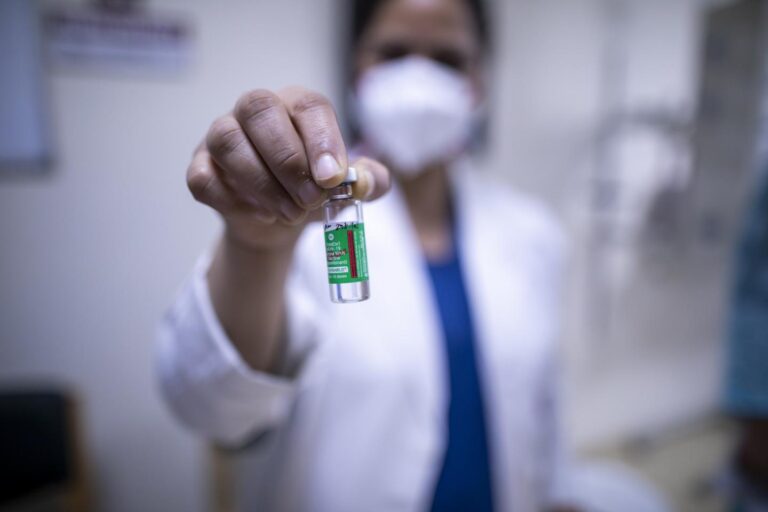
COVID-19 VACCINATION- WHY DO WE REQUIRE THE COVID-19 VACCINE?- Will the vaccine protect me from COVID-19

What is the procedure of vaccination?
Vaccines aid in the development of immunity against a virus or other germ. A vaccine sends into a person’s body a less hazardous portion of that pathogen — or something made to look or act like it. The immune system of the body produces antibodies that fight the pathogen and prevent the person from becoming ill. If the person is exposed to that pathogen again, their immune system will be able to “recognize” it and “remember” how to fight it.
Is there a coronavirus vaccination available?
Yes, the FDA has awarded COVID-19 vaccines emergency use permission (EUA). Pfizer’s vaccine was approved on December 12, 2020; Moderna’s version was approved on December 18, 2020; and Johnson & Johnson’s vaccine was approved on February 27, 2021, but its use was restricted on April 13.
COVID-19 is a virus that can be prevented with a vaccination.
Each viral particle of the coronavirus that causes COVID-19 has protein spikes. These spikes aid virus attachment to cells and disease transmission. Some coronavirus vaccines are being developed to help the body “recognize” these spike proteins and attack the coronavirus that contains them.
When someone receives an effective vaccine, their chances of contracting COVID-19 are reduced if they come into contact with the coronavirus. The vaccine’s effectiveness in preventing major disease, hospitalization, and death is more significant. At the current moment, all three vaccines are highly effective in avoiding COVID-19-related major illness, hospitalization, and death. Because of widespread immunization, the coronavirus will infect fewer people. This will limit the virus’s ability to propagate among populations while also limiting its ability to change into new strains.
When will the coronavirus vaccination be available?
Vaccinations are being supplied across the United States now that the Food and Drug Administration has approved emergency use authorizations for COVID-19 vaccines.

What is the number of injections in the COVID-19 vaccine?
The vaccinations from Pfizer and Moderna require two doses given several weeks apart (the second shot from Pfizer is given three weeks after the first, while the second shot from Moderna is given four weeks after the first). Johnson & Johnson’s COVID-19 vaccination only requires one dosage.
What does “fully vaccinated” indicate?
Two weeks after your second dose in a two-dose series, such as the Pfizer or Moderna vaccines, you are fully immunized, according to CDC criteria. It’s been two weeks since I received a single dosage of the Johnson & Johnson vaccine. However, findings from clinical trials show that four weeks after receiving the single-shot vaccine, there is still an improvement, particularly in terms of preventing severe COVID-19 infection or having an asymptomatic infection. As a result, Johns Hopkins Medicine suggests waiting four weeks after receiving a single-dose vaccine before considering yourself fully immunized.
You are not properly vaccinated if you do not meet these requirements.
How long will it keep me safe? Is it necessary for me to receive a COVID-19 shot every year?
This is a question that researchers are very interested in answering. People infected with the coronavirus have a drop in protection after a few months, although their immunity may continue much longer. (It appears that a few people have caught COVID-19 twice, although this is unusual). Data from vaccine trials show that strong protection lasts for months following immunization, implying that long-term immunity is achievable. Studies are looking into how changes in the coronavirus affect the virus’s characteristics, such as its ability to spread between people, as it has begun to adapt (mutate). A significant mutation could have an influence on vaccination effectiveness, and vaccine producers are poised to make changes if necessary.
Will the vaccine protect me if I’ve had COVID-19 or tested positive for the coronavirus before?

People who have already had COVID-19 or who have tested positive for COVID-19 may still benefit from obtaining the vaccine, according to the US Centers for Disease Control and Prevention (CDC). There is currently insufficient information to say whether or whether people are protected against having COVID-19 after they have had it, or for how long (natural immunity). Early evidence suggests that natural COVID-19 immunity may not endure long, although further research is needed to fully understand this.
What will we use to determine whether a COVID-19 vaccine is safe and effective?
A COVID-19 vaccination must pass specific tests and meet certain standards in order to be labelled safe and effective. Scientific data from research is used by organizations like the National Academy of Sciences, the National Institutes of Health, and the Food and Drug Administration (FDA) to assist decide whether and when new medications and vaccines can be made available.
It’s vital to know that COVID-19 cannot be contracted by vaccination. The vaccines contain proteins or other biological ingredients to trigger the immune response, but they do not contain the coronavirus.